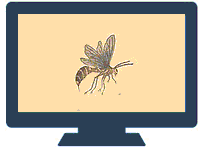Entomology, Department of

Department of Entomology: Distance Master of Science Projects
Date of this Version
2022
Document Type
Project
Citation
Master of Science Degree Project, Department of Entomology, University of Nebraska-Lincoln, 2022.
Abstract
Integrated Pest Management (IPM) is a holistic strategy for the management of pest species. It is a framework that relies on scientifically informed decisions to identify and remediate a pest problem in a way that minimizes harm to the environment, human health, and the economy (Dara, 2019). The term pest is broadly defined not just as a nuisance, but as any organism that has detrimental effects to a resource or public health and that exists at a population level that exceeds a threshold of economic damage. This encompasses invertebrates (such as insects, nematodes, and mites), vertebrates, plant pathogens, diseases, and weeds (Fernandez-Cornejo & Jans, 1999). IPM relies on a coordinated use of multiple tactics to promote a suppression rather than elimination of the pest. These tactics include cultural, mechanical, biological, and chemical controls (Dara, 2019). The concept of IPM is fundamental to the study of entomology as insect pests represent a large portion of the pest problems facing agriculture systems, horticulture, and public health. Just in agriculture, it is estimated that invasive insects cost the global economy $70 billion in losses each year (FAO, 2019). It is no surprise that insects comprise a large portion of the overall pest problem as they are the largest group of animals on the planet, accounting for 80 percent of all currently known species of animals. Due to the insect’s great ability to adapt to generally every known habitat, many estimates put the diversity of insects on a range of potentially 2-30 million species (Smithsonian, n.d.).


Comments
Copyright © 2022 Ivy Grob